How Many Years Does a LiFePO4 Battery Last?
Are you worried about investing in LiFePO4 batteries because you're unsure how long they'll actually last? Many users share this concern, especially given the higher upfront costs compared to traditional lead-acid batteries.
A well-maintained LiFePO4 battery typically lasts 10-15 years or 3000-7000 cycles, whichever comes first. With proper care and optimal usage conditions, some batteries can even exceed these estimates.
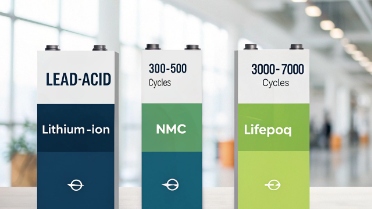
The lifespan of a LiFePO4 battery isn't just about years - it's about how you use it. Let's explore the key factors that influence battery longevity and how to maximize your investment.
Can LiFePO4 Batteries Really Last 20 Years?
Many manufacturers claim their LiFePO4 batteries can last up to 20 years, but these marketing promises often leave consumers skeptical. After all, most of us have seen rechargeable devices deteriorate much faster.
While 20 years is technically possible under ideal conditions, most LiFePO4 batteries realistically last 10-15 years with normal use. The key factors affecting longevity include charging habits, depth of discharge, and operating temperature.
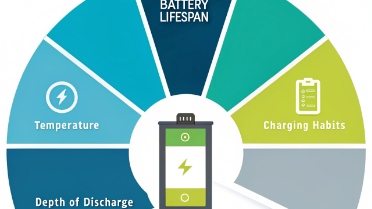
I've found that battery lifespan heavily depends on usage patterns and environmental conditions. Here's a detailed breakdown of factors affecting LiFePO4 battery longevity1:
Temperature Impact
- Optimal range: 20-25°C (68-77°F)
- Above 35°C: Accelerated degradation
- Below 0°C: Reduced capacity and potential damage
Charging Habits
| Habit | Impact on Lifespan |
|---|---|
| Shallow charging (20-80%) | Extends lifespan |
| Regular full discharges | Reduces lifespan |
| Fast charging | Moderate degradation |
| Trickle charging | Minimal impact |
Do 10-Year Lithium Batteries Actually Last That Long?
When manufacturers advertise 10-year lifespans, it's natural to be skeptical. Many of us have experienced batteries failing long before their promised lifespan, leading to frustration and wasted money.
With proper maintenance, 10-year rated LiFePO4 batteries can indeed last their full rated lifespan. However, this requires following recommended charging practices, avoiding extreme temperatures, and not regularly depleting below 20% capacity.
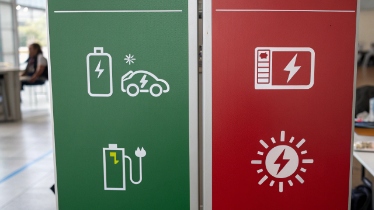
My experience with battery longevity has shown that actual lifespan depends heavily on usage patterns. Consider these critical factors:
Cycle Life vs. Calendar Life
- Cycle life: Number of charge/discharge cycles
- Calendar life: Total years regardless of use
- Most batteries reach their cycle life before calendar life
Real-world data shows that batteries used daily might only last 8-9 years, while those used occasionally could exceed 10 years. The key is understanding that the "10-year" rating is based on specific usage conditions that may not match your actual use case.
Are LiFePO4 Batteries Reliable?
With so many battery technologies available, it's crucial to know if LiFePO4 batteries are worth the investment. Past experiences with unreliable batteries make this question particularly relevant.
LiFePO4 batteries are among the most reliable lithium battery technologies, offering superior thermal stability, longer cycle life, and better safety features compared to other lithium chemistries.
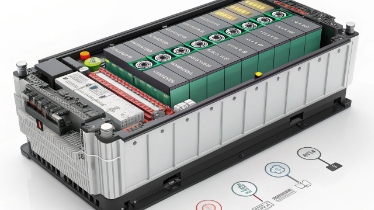
Understanding reliability requires looking at multiple factors:
Safety Features
- Built-in BMS (Battery Management System)
- Thermal runaway resistance
- Overcharge protection
- Short circuit prevention
Performance Consistency
| Factor | LiFePO4 Performance |
|---|---|
| Voltage stability | Excellent |
| Temperature tolerance | Good |
| Self-discharge rate | Very low |
| Maintenance needs | Minimal |
How Long Will a 12V 100Ah LiFePO4 Battery Last?
The runtime of a specific battery capacity is one of the most common questions I receive, especially regarding 12V 100Ah batteries, which are popular for various applications.
A 12V 100Ah LiFePO4 battery can provide 1200 watt-hours of energy. This translates to approximately 10-12 hours of use for a 100W load, or 5-6 hours for a 200W load, assuming 80% depth of discharge.
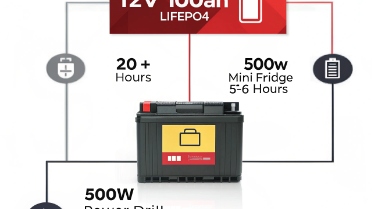
Let's break down the practical aspects of battery runtime:
Usage Scenarios
- Light load (50W): 20+ hours
- Medium load (200W): 5-6 hours
- Heavy load (500W): 2-2.5 hours
Factors Affecting Runtime
| Factor | Impact on Runtime |
|---|---|
| Temperature | ±20% variation |
| Age | 1-2% loss per year |
| Load type | 10-30% variation |
| Charge level | Linear impact |
Conclusion
LiFePO4 batteries typically last 10-15 years with proper care, offering reliable performance and good value despite higher upfront costs. The key to maximizing lifespan lies in proper maintenance and understanding usage patterns.
-
Exploring ways to enhance LiFePO4 battery longevity can lead to better performance and cost savings. ↩